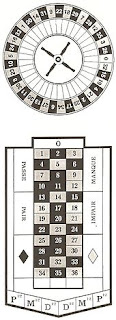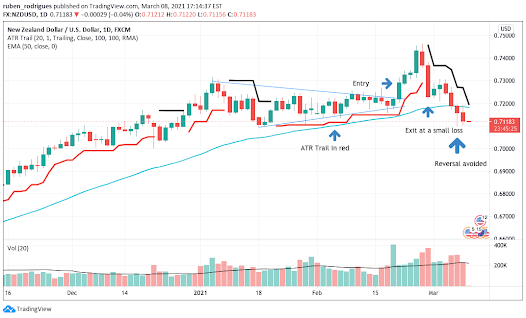Launchpad: The Casino Trading Layout
Yes! You bet! Most likely just like any given beginner, at the very start of my odyssey, I was also hitting hard on buy-signals, candlestick patterns, chart patterns and whatnot. These topics occupied the bulk of my learning time and my pioneer trading experiences.
At the time I felt like, despite thoroughly following book-example buy-signals, the outcomes were some what very random.
Of course that by then I was still grossly neglecting trading concepts that I now deem as more important than buy-signals. Subjects that, well studied, would turn this problem around. However, it was towards another question that my curiosity had been leaning onto.
What made this question so obvious was not its loud noise but, on the contrary, the subliminal kind of way it was being posed. Just as if it was being whispered in my ears every time my mind diverted into trading.
This question ended up becoming the seed from where, slowly, almost holistically, my system has been sprouting. It goes like this:
"What makes trading different from gambling or sports betting?"
It would have ramifications such as "what am I doing any different from my friends betting on a tie between Man United and West Ham?" or "Average Joe can also drop by Vegas and, press a couple of buttons of a slot machine and emulate this same process I'm going through. What makes this, thus so special?"
Due diligence led me to dissect the business model of the counter-part of a gambler. Yes, the Casino.
Where the hell do they make their money from, if gambling is supposed to be random? Yes, randomness goes both ways, but what makes it so interesting to start such business in first place? After all one can't even predict income, cashflow, expenses or whatsoever. The results are random, right?
Well, my findings to this question were quite surprising. The answer is yes, they are random and no, they are not!! How come?
I discovered that the outcomes from gambling, from the stand point of a casino, are random in the short run, but they are quite predictable (and you guessed right - profitable) in the long run. I discovered that they put this piece of alchemy together with some very simple and subtle adjustments of the odds to their favor.
You don't believe me? Let's pull an example to prove this bold statement, then.
For the sake of simplicity, say you are a Roulette fan. Let's say also that you are a simplistic roulette fan who likes to play your odds at the Red or Black, outside bet, only. Numbers from 1 to 36, 18 of them red, 18 black. Say you bet on red, 50% percent of probability of wining and 50% of losing, right?
Well, for those who've already played Roulette, you should have already noticed that the above in not quite accurate. There is a very tiny, yet decisive, detail that forces us to change the scrip of our story and the accounting of our odds:
(allow me to commit a writing layout crime and display this in a separate line, because it is that important)
There is actually at least a zero with neutral color adding up to the above mentioned 36 numbers (double zero in the American version).
What does this mean? This means that if you're betting on Red or Black you won't have a 50/50 probability of winning or losing. Let's say you bet in reds, you have 18/37 = 48,6% odds of wining. Same maths if you bet in blacks.
Sill, isn't 48,6 close enough to 50? Well in the short run yes. But try spinning a roulette a hundred, a thousand, a million times. The Law of Big Numbers will do the work for the casino and will make sure all they have to worry about is one thing: keep the roulette spinning.
What's more? For those acquainted with gambling, do betting limits ring a bell? Still recurring to our Roulette example, at the end of the day, from the casino perspective, the odds of losing any given play are still 48,6%. Meaning that if you bet big enough you technically have 48,6% odds of bankrupting a casino.
Do you think Casinos let this happen? Of course not. Casinos are great risk managers and won't allow you to bet big enough to remotely jeopardize their long term plan.
Does this sound familiar? We can keep on going of course, but hope this example is already sufficient to come across with the answer I found:
** What differs trading from gambling is that, AS A TRADER, YOU CAN BE THE CASINO**
Think about it. With the proper backtesting and no less importantly, learning from other traders, can't you, as trader, come up with high probability buy-signals? Can't you as a trader, come up with risk management strategies - such as position size- that will enable you to keep in business to execute your long term plan? Doesn't the market allow you to spin your own roulette over and over? Can't you, as trader, come up with a strategy to cut your losses quickly and ride your winners longer?
No matter how good your buy-signal is, your next trade is always going to have a significant probability of failure and a huge random factor attached to it. The good news is that in trading, just like a casino, you have a very advantageous degree of discretion to set the odds in your favor over the long run. Well, in the upcoming post I'll be here to share with you how I've learnt to use them.
Be a casino!!
Cheers,
RR


Comments
Post a Comment